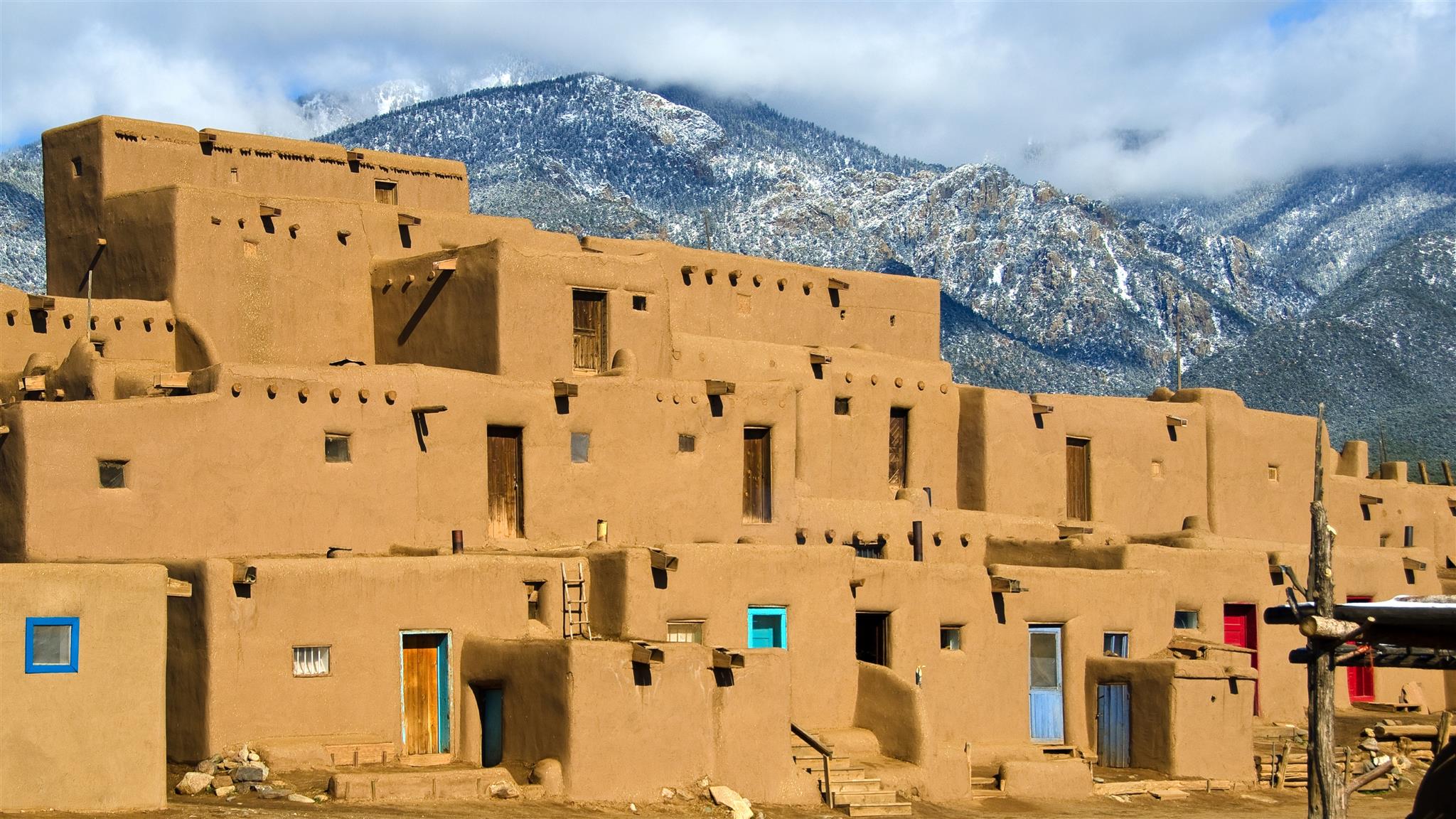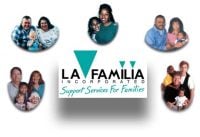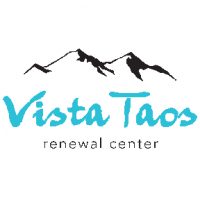Drug & Alcohol Treatment Centers near you in Taos, NM
Taos, New Mexico has been struggling with drug addiction and abuse problems for many years. The city has a long history of drug trafficking, and this has led to a high level of drug abuse among residents. In recent years, the problem has been exacerbated by the proliferation of methamphetamines and heroin.
The city is also grappling with a high rate of HIV/AIDS, which is often linked to drug use. In response to these issues, Taos has implemented a number of prevention and treatment programs. If you or someone you know is struggling with drug addiction or abuse, there are a number of drug and alcohol treatment centers near you in Taos, NM. These facilities offer a variety of programs and services to help you get sober and stay sober.
There’s opportunity for rehabilitation and a better future with a variety of drug and alcohol treatment services offered throughout the state, here’s what we have for Taos. Find a facility in our list below which fits your needs, or contact us for individual recommendations.
Free New Mexico Addiction Admissions Hot-Line
We will help you find treatment based on your location, budget, and specific needs and help you get started safely.
Free + Confidential Consultation
Browse 16 Centers in Taos, New Mexico
Shadow Mountain Recovery - Taos Recovery Center is a JCAHO, NAATP, and LegitScript certified 20-bed addiction treatment facility that provides detoxification services, inpatient treatment, aftercare support, and sober living/half-way housing, ranging from residential programs to evidence-based therapy like Cognitive Behavioral Therapy (CBT), and accepts most private health insurances.


Vista Taos Renewal Center is a premier drug rehab facility located in New Mexico offering comprehensive and individually tailored services, accredited by CARF, NAATP and LegitScript, that provide clients with the necessary support they need to achieve long-term sobriety.


For over 40 years, Rio Grande Intensive Outpatient Treatment in Taos, NM has been providing individuals suffering from substance abuse, mental health, and opioid dependencies with a range of personalized recovery services and resources, approved by SAMHSA, to promote lasting sobriety.

La Familia - Taos offers a range of evidence-based substance abuse and addiction treatment services, including clinical assessment, counseling, medication-assisted treatment, and holistic therapies, and has earned accreditation from CARF and recognition from SAMHSA.
Human Resources Dev Assoc Taos Community Corrections
Human Resources Dev Assoc Taos Community Corrections is an addiction treatment center in New Mexico that provides evidence-based treatment programs and services to both criminal offenders and non-criminal clients, with a focus on helping individuals understand their addiction, develop healthier coping skills, and maintain sobriety in their everyday lives.
Taos Detox
Taos Detox is a comprehensive addiction treatment facility located in Taos, New Mexico that specializes in the treatment of alcoholism, opioid addiction, substance abuse, and drug addiction providing various levels of care such as detox, rehab, behavioral therapy, support groups, and holistic approaches.
Tri County Community Services - West Taos is an accredited addiction and substance abuse treatment facility located in Taos, New Mexico, offering a variety of evidence-based services tailored to individual needs, including detox, residential and outpatient treatment, and aftercare service plans, as well as holistic and experiential therapies.
Vista Taos, located in Taos, New Mexico, is an addiction treatment facility specializing in helping individuals suffering from opioid addiction, substance abuse, and drug addiction through comprehensive recovery programs and evidence-based treatments such as CBT, MI, and DBT, with accreditations and licenses from the Joint Commission and the State of New Mexico.
Tri County Community Services - Detoxification Center in Taos, New Mexico is a state-certified and nationally accredited substance abuse and addiction treatment center providing assessment, stabilization, detoxification, and treatment services, utilizing evidence-based treatment protocols, 12-step recovery programs, and holistic therapies.
Tri County Community Services - Sipapu
Tri County Community Services - Sipapu is a comprehensive outpatient addiction treatment facility in Taos, NM that offers a variety of therapies, virtual visits, and a supportive environment to assist individuals in long-term sobriety.
Agave Health - Taos offers comprehensive addiction and substance abuse treatment programs in a safe and therapeutic environment, utilizing evidence-based practices and personalized plans tailored to each patient's individual needs, and providing unique activities and support groups to aid in long-term sobriety.
TriCounty Behavioral Health Services is a premier mental health and substance abuse treatment center located in Taos, New Mexico, offering a holistic, trauma-informed approach to helping individuals overcome addiction and mental health issues, with a staff comprised of experienced and highly trained professionals dedicated to clients' wellbeing.
AA - Alcoholics Anonymous

The Dream Zone
The Dream Zone Health Center is a premier addiction treatment facility in Taos, NM providing personalized care plans and evidence-based therapies, as well as family support services to help individuals achieve long-term sobriety.
Tri County Community Services - Sipapu
Tri County Community Services - Sipapu in Taos, New Mexico offers comprehensive addiction treatment services, including assessments, individual and group counseling, medication-assisted treatment, and evidence-based therapies.
Information About Substance Abuse and Addiction in Taos, NM
Drug addiction is a serious problem that can have a devastating impact on your life and the lives of those around you. When you’re addicted to drugs, you can’t control how much you use and you can’t stop using even if you want to. The drugs take over your life and control your thoughts, feelings, and behavior.
Drug addiction is a chronic disease that requires treatment. The good news is that there is hope. There are many effective drug and alcohol treatment programs available, and with the help of a qualified treatment provider, you can overcome your addiction and reclaim your life.

What types of treatment are available in Taos, New Mexico?
There are many different types of drug treatment options available for someone looking to get sober in Taos, New Mexico. Some common treatments include detoxification, inpatient treatment, outpatient treatment, and 12-step programs.
Detoxification is the process of withdrawing from drugs or alcohol. This can be done in an inpatient or outpatient setting.
Inpatient treatment is a residential program where you live at the treatment center for the duration of your stay. This type of program typically offers more intensive treatment than outpatient treatment.
Outpatient treatment is a less-intensive program where you visit the treatment center a few times a week. This type of program is suitable for people who have less severe addictions or who cannot leave their homes or work for an extended period of time.
12-step programs are self-help programs that are based on the principles of Alcoholics Anonymous (AA). These programs offer support and guidance for people who are trying to overcome their addiction.
Drug and Alcohol Statistics in Taos, New Mexico
According to New Mexico’s Behavioral Risk Factor Surveillance System (BRFSS), approximately 15% of adults in Taos reported using illicit drugs. The main drugs of abuse in the city are methamphetamines, heroin, cocaine, and marijuana.
In terms of alcohol, about 27% of adults in Taos reported binge drinking in the past month. This is significantly higher than the state average of 18%. Taos also has a high rate of DUI arrests. In 2017, there were 188 DUI arrests in the city.
- About 45% of people in New Mexico who abuse drugs also have a mental health disorder.
- 30% of people who abuse marijuana in New Mexico also abuse other drugs.
- 18% of DUI arrests in Taos are for drivers who are under 18 years old.
- The number of drug overdose deaths in Taos has increased by nearly 150% from 1999 to 2019.
Additional Treatment Centers in New Mexico
New Mexico has been one of the leading states in the nation when it comes to drug and alcohol use, abuse, and addiction. Opioids are responsible for over 60% of all drug-related overdoses in New Mexico. Alcohol-related deaths in New Mexico are the highest in the nation and almost twice the national average since 2000.
Still haven't found the right recovery center? Browse nearby New Mexico cities.
- Pueblo Of Acoma, NM (156.3 mi.)
- Roswell, NM (213.3 mi.)
- Jemez Pueblo, NM (87.4 mi.)
- San Juan Pueblo, NM (39.8 mi.)
- Pena Blanca, NM (73.6 mi.)
- Las Cruces, NM (290.0 mi.)
- Canon, NM (86.1 mi.)
- Shiprock, NM (180.3 mi.)
- Albuquerque, NM (110.9 mi.)
- Portales, NM (194.0 mi.)
- Carlsbad, NM (282.8 mi.)
- Laguna, NM (141.4 mi.)
- Albuquerque, NM (102)
- Santa Fe, NM (34)
- Taos, NM (16)
- Gallup, NM (12)
- Farmington, NM (12)
- Espanola, NM (12)
- Rio Rancho, NM (10)
- Roswell, NM (9)
Length of stay in a treatment facility
The length of time someone spends in a drug treatment facility can vary depending on several factors. The severity of the addiction, the type of drugs being abused, and the individual’s overall health can all play a role in determining how long treatment will last.
In general, most people who enter treatment will stay for at least 30 days. This gives them time to detox from the drugs, begin therapy, and develop coping skills that will help them in early recovery. For some people, 30 days is enough to make significant progress. However, for others, a longer stay may be necessary.
People with more severe addictions or those who have relapsed multiple times may benefit from 90-day or even longer programs. The most important thing is to find a program that is tailored to your needs and that will provide you with the support you need to succeed.
Types of therapy offered
There are many different types of therapy available at drug and alcohol treatment centers. The most common therapies used in addiction treatment are cognitive-behavioral therapy (CBT), motivational interviewing, and holistic therapy.
CBT is a type of therapy that helps you learn how to identify and change the thoughts and behaviors that contribute to your drug addiction. CBT can be very effective in helping you stay sober and manage cravings.
Motivational interviewing is a type of counseling that helps you explore your motivations for wanting to get sober and change your behavior. This type of therapy can be very helpful in getting you started on the road to recovery.
Holistic therapy is a type of treatment that focuses on the whole person, not just the addiction. It includes therapies such as yoga, meditation, and acupuncture. These therapies can help you restore balance in your life and address the underlying issues that may have contributed to your addiction.
How to choose a treatment center
When you’re looking for a treatment center, it’s important to find one that meets your needs. There are many different types of centers available, and each one has its own strengths and weaknesses.
Some factors to consider when choosing a treatment center include the type of therapy offered, the length of stay, the cost, and the location.
Accreditation is also an important factor to consider. Accredited centers have met certain standards of quality and are monitored regularly to ensure that they continue to meet these standards.
You can also consider amenities offered by the center, such as recreational activities, meals, and housing. These can be helpful in providing a supportive and comfortable environment for your recovery.
Special programs
There are many special programs available at drug and alcohol treatment centers. These programs can be very helpful in helping you overcome your addiction.
Some of the most common special programs include:
- Dual diagnosis: This program is designed for people who have a co-occurring mental health disorder along with their addiction.
- Women’s programs: These programs are designed specifically for women and pregnant women who are struggling with addiction.
- Faith-based programs: These programs use religious principles to help people overcome their addictions.
- Teen programs: These programs are designed for adolescents who are struggling with addiction.
Payment options
Most drug and alcohol treatment centers accept insurance. This can make the cost of treatment more affordable. However, some insurance only accepts in-network providers.
Many centers also offer sliding-scale fees, which means that the cost of treatment is based on your income. This can be helpful in making treatment more accessible to people who may not be able to afford it otherwise.
There are also state and federally funded programs available that offer free or low-cost treatment.
Aftercare and relapse prevention
You can reduce the chance of relapse by participating in aftercare and relapse prevention programs. These programs provide support and guidance long after you leave treatment.
Aftercare programs may include sober living homes. These homes are typically staffed with counselors who can help you stay sober and avoid relapse.
Relapse prevention programs typically include education on how to identify and deal with triggers that may lead to a relapse.
Need treatment nearby in Taos, New Mexico? Choose a drug/alcohol rehab center from our list, or call our hotline now for free help. (888) 674-0062.



